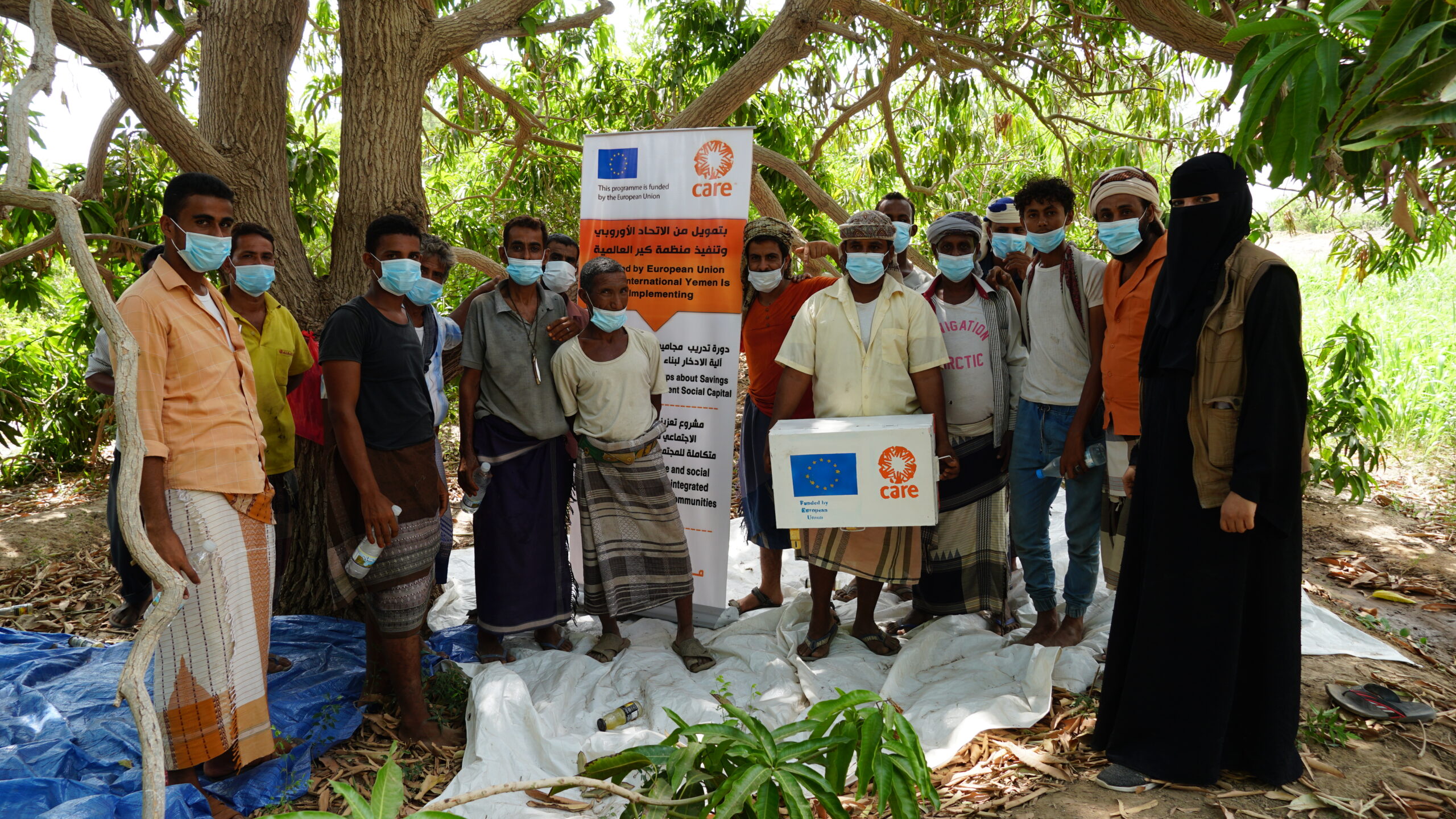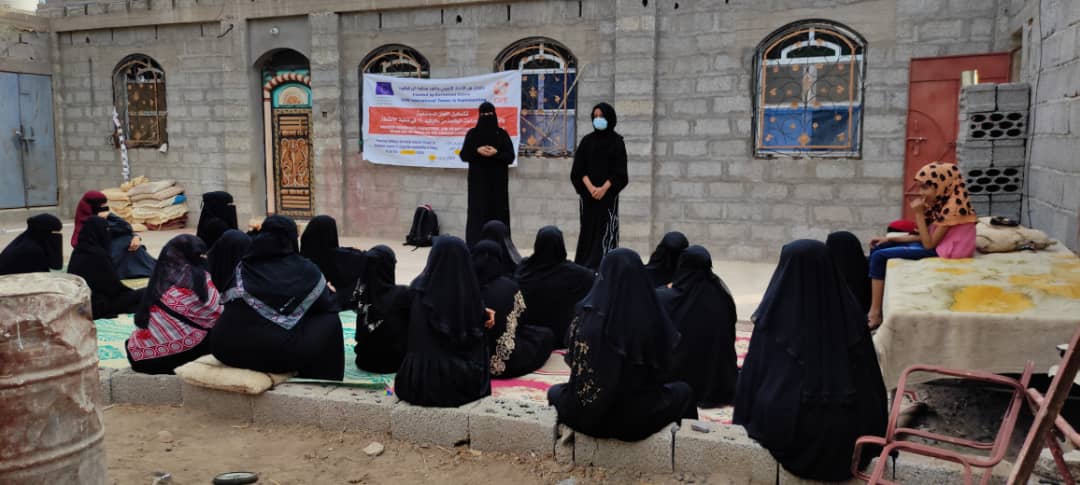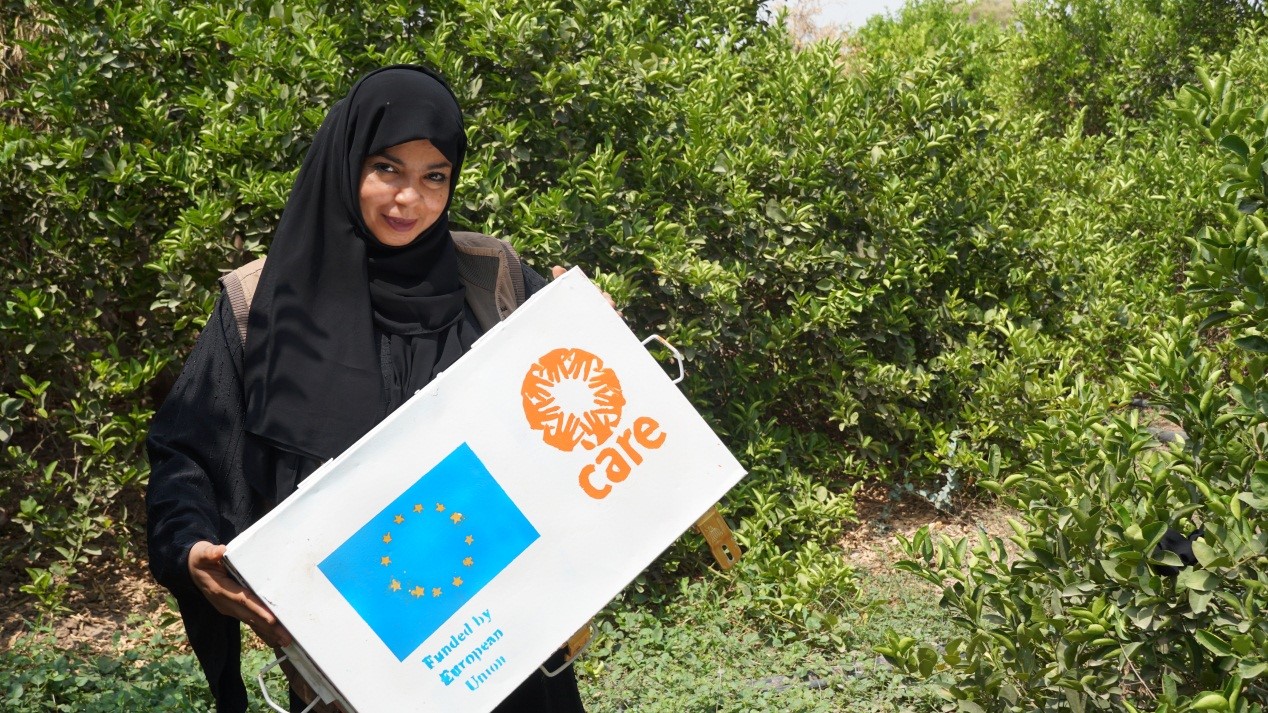In 2018, Manar Mohsen joined CARE’s team in Aden, Yemen, as Food Security and Livelihoods Field Officer. Since then, she has been actively contributing towards the organization’s efforts to ensure that the most vulnerable Yemeni families are able to have improved access to food in a sustainable manner.
“Through my work, I was increasingly aware of how important it is for the villagers to be empowered to earn an income, to buy what they need and to be able to send their children to school. With the work we’ve been delivering in the communities introducing marketing skills to small business owners, this empowerment is now made more possible. It helps make the families more self-reliant, ” says Manar.
Under the EuropeAid-funded project Promoting Resilience and Social Cohesion through an Integrated Response to Vulnerable Communities in Yemen, CARE is introducing Village Savings and Loan Associations (VSLAs) as part of activities that aim to sustainably increase the resilience of communities Through her previous experience in being involved in VSLAs, Manar has been able to apply her knowledge to support the community members and the trainers and to facilitate the trainings. She will also be monitoring the VSLAs’ progress in the coming months.
VSLAs set up by this project in Tuban and Madribah districts, are a safe way to form a savings group at the community level, where members can collectively save money and access loans through the saving pot. These loans can help members meet their needs in terms of managing their household finances, securing income through small businesses and staying out of debt.
Through her involvement in the two-year Project of Promoting resilience and social cohesion (an integrated response to vulnerable), funded by the European Union and implemented by a consortium led by ACTED and implemented by CARE, Manar sought to increase the percentage of female members in relation to the percentage of male members. Her efforts are driven by her belief in the power of women and she helps them gain self-reliance. The project provides new opportunities that lead to more peaceful relations between husbands, wives and neighbors in the targeted villages.


